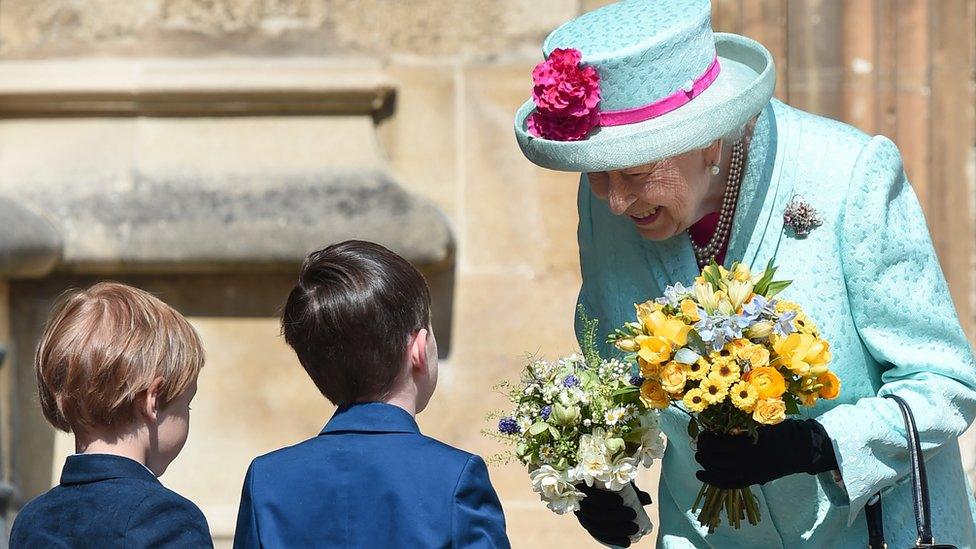Coronavirus: Boris Johnson 'owes his life to NHS staff'
- Published
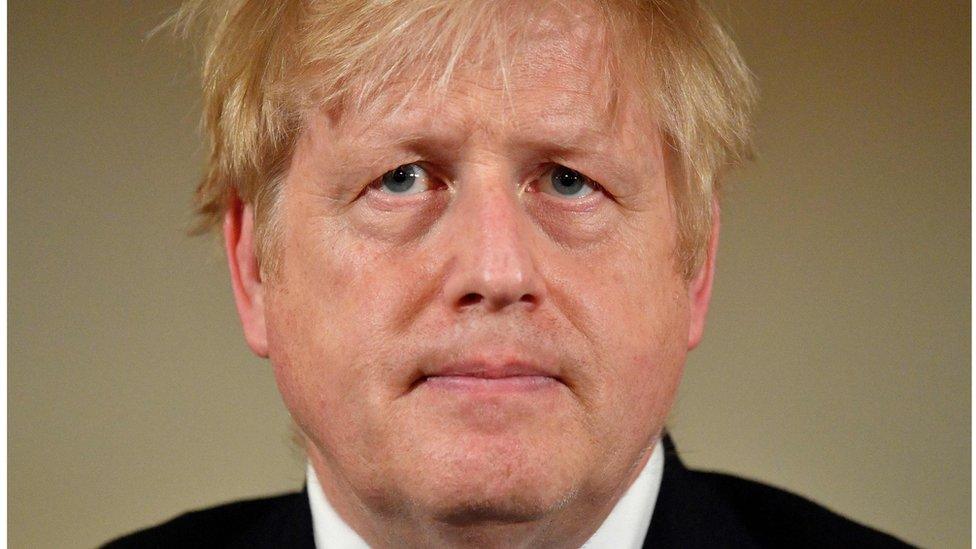
Boris Johnson has said he owes his life to the NHS staff treating him for coronavirus.
In a statement released by No 10, the prime minister, 55, thanked medics at St Thomas' Hospital in London, where he continues to recover after spending three nights in intensive care.
It comes as UK deaths from the virus are expected to pass 10,000 on Sunday.
On Saturday, the UK recorded 917 new coronavirus deaths, taking total hospital deaths to 9,875.
Ministers are continuing to urge people to stay at home over the Easter weekend to curb the spread of the virus, despite warm and sunny weather across parts of the UK.
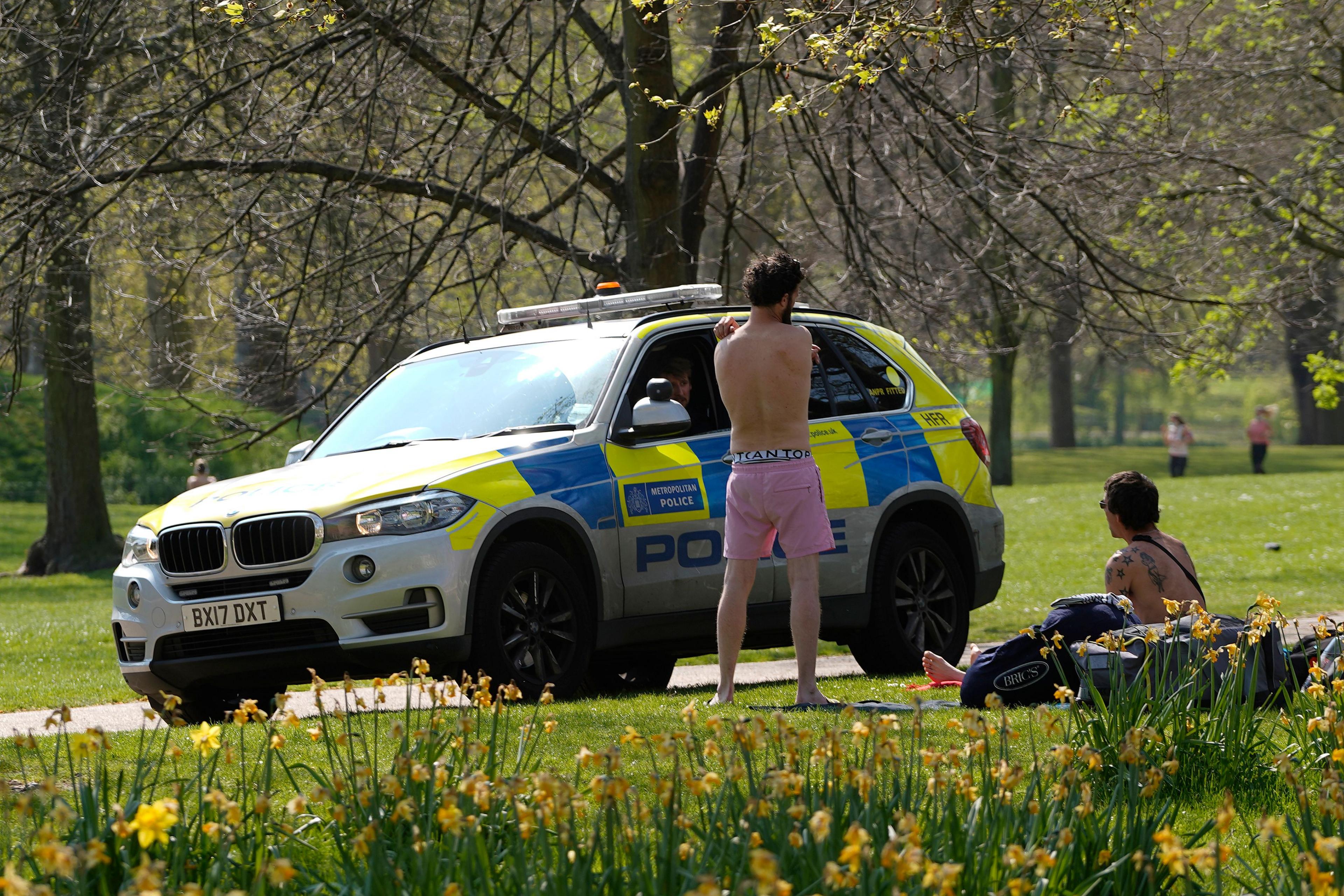
Police officers talk to two men who had been sunbathing in St James's park in central London on Saturday
Meanwhile, Sir Jeremy Farrar, director of the Wellcome Trust - Britain's biggest charitable funder of scientific research - said the UK was likely to be "one of the worst, if not the worst affected country in Europe".
Sir Jeremy, a member of the government's Scientific Advisory Group for Emergencies (Sage), also told BBC' One's Andrew Marr programme that a second or third wave of the virus "was probably inevitable" and treatment and a vaccine was "our only true exit strategy".
He said a vaccine could be available by autumn but it would take longer to ramp up manufacturing to the scale required to vaccinate many millions of people.
"I would hope we would get [that] done in 12 months but that is in itself an unprecedented ambition," he said.
Sir Jeremy Farrar: "The UK is likely to be one of the worst, if not the worst affected country in Europe"
Asked whether he agreed with Sir Jeremy's analysis of the UK's death rate, Business Secretary Alok Sharma said: "Different countries are at different stages of this cycle."
"What we have done with the advice that we have now set out to people, to stay at home, is precisely because we want to make sure that we have a flattening of the curve, that infection rates aren't going up, and ultimately people's lives are being saved," he told the programme.
"We are starting to see these measures work," he added, but said it was too early for them to be lifted yet.

A SIMPLE GUIDE: How do I protect myself?
HOPE AND LOSS: Your coronavirus stories
LOOK-UP TOOL: Check cases in your area
VIDEO: The 20-second hand wash

In his first public statement since being moved out of intensive care on Thursday, Mr Johnson paid tribute to the medics treating him, saying: "I can't thank them enough. I owe them my life."
Speaking as she led the government's daily coronavirus briefing on Saturday, Home Secretary Priti Patel said the PM needed "time and space to rest, recuperate and recover".
BBC political correspondent Ben Wright said No 10 did not want to speculate about when the PM might leave hospital or be back at his desk, but a return to work "does not look imminent".
He said the prime minister was expected to rest and recover in the coming weeks, with Foreign Secretary Dominic Raab continuing to deputise - and to be in charge when ministers carry out a review of the lockdown measures.
Meanwhile, a message posted from the prime minister's Twitter account wished the country a happy Easter, as worshippers marked the festival from home.
"This year across the country churches will remain closed and families will spend the day apart," the message said, external.
"But by staying home, remember, you are protecting the NHS and saving lives".
The number of new deaths announced on Saturday was slightly down on the previous day's 980 deaths - but was the second day in a row the figure had been more than 900.

'A kind and compassionate hero'
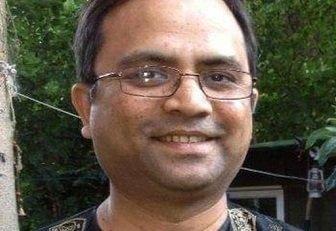
Abdul Mabud Chowdhury, 53, was a married father-of-two and a consultant urologist. He died with coronavirus on Wednesday.

Meanwhile, Parliament is to return virtually on 21 April to debate coronavirus measures, authorise spending and make laws.
It comes after Labour leader Sir Keir Starmer said MPs must be able to hold the government's decisions to account.


There've been so many grim milestones in this coronavirus outbreak but passing a death toll of 10,000 may prove one of the most shocking.
There are positive signs that the rate of infection is slowing, driven down by social distancing.
But the numbers dying every day may increase still further because some people who caught the virus three or four weeks ago may not survive intensive care now.
The scientists advising the government have long warned of this lag between measures to keep the public at home and a reduction in the daily death toll.
The expectation is that on current trends there will be a peak, perhaps in a week or two, though no-one can predict how long it'll take after that for the losses to fall to low levels.
It all depends on the public's response and so far officials say it's been overwhelmingly supportive.

In other developments:
Some key medicines used in intensive care are "in relatively short supply", the BBC understands.
The UK will send £200m in aid to help developing nations battle coronavirus and to help stop a "second wave" of infections hitting the UK.
The US now has now overtaken Italy to have the highest death toll from coronavirus in the world. The latest data, compiled by Johns Hopkins University, shows more than 20,000 people in the US have now died.
There is "emerging evidence" to suggest coronavirus is having a disproportionate impact on people who are black, Asian and minority ethnic.
- Published28 April 2020
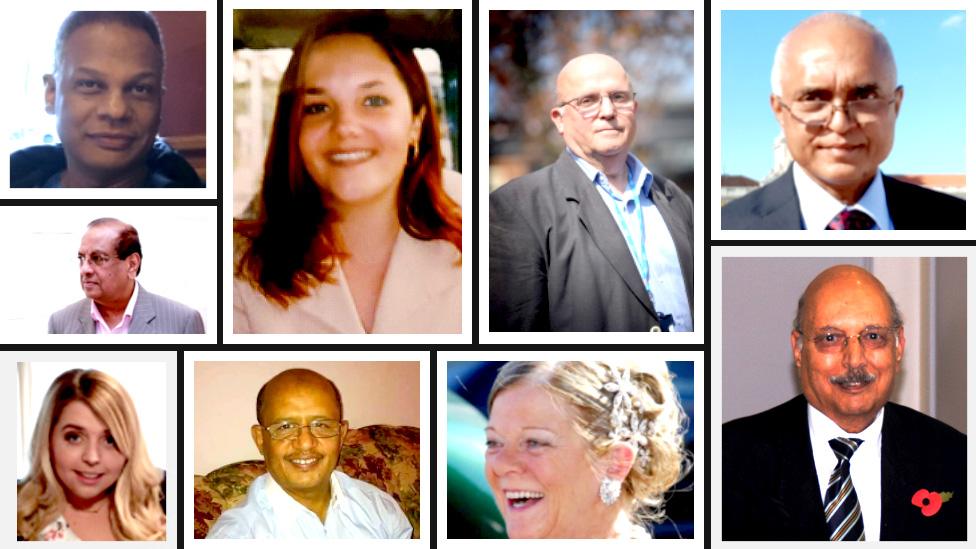
- Published12 April 2020
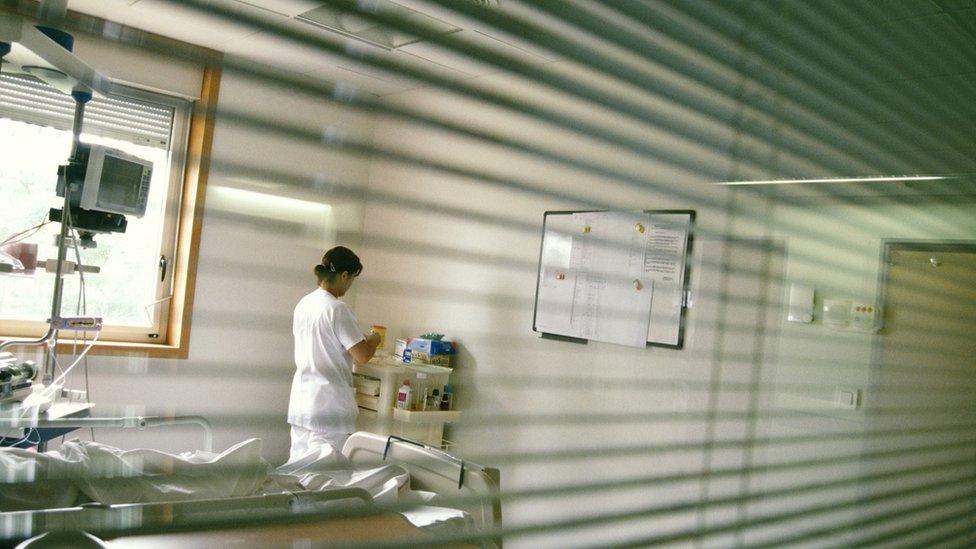
- Published11 April 2020
